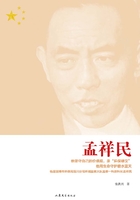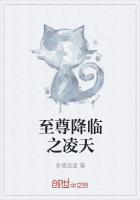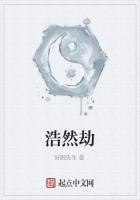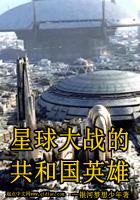Faithful to the memory of him who had left us, we wished a simple interment in the family vault in the little cemetery at Sceaux. There was neither official ceremony nor address, and only his friends accompanied him to his last home. As he thought of him who was no more, his brother Jacques said to me: "He had all the gifts; there were not two like him."
In order to assure the continuance of his work, the Faculty of Sciences of Paris paid me the very great honor of asking me to take the place that he had occupied. I accepted this heavy heritage, in the hope that I might build up some day, in his memory, a laboratory worthy of him, which he had never had, but where others would be able to work to develop his idea. This hope is now partly realized, thanks to the common initiative of the University and the Pasteur Institute, which have aimed at the creation of a Radium Institute, composed of two laboratories, the Curie and the Pasteur, destined for the physicochemical and the biological study of radium rays. In touching homage to him who had disappeared the new street leading to the Institute was named rue Pierre Curie.
This Institute is, however, insufficient in view of the considerable development of radioactivity and of its therapeutic applications. The best authorized persons now recognize that France must possess a Radium Institute comparable to those of England and America for the Curie-therapie which has become an efficacious means in the battle against cancer. It is to be hoped that with generous and far-seeing aid, we shall have, in a few years, a Radium Institute complete and enlarged, worthy of our country.
To honor the memory of Pierre Curie, the French Society of Physics decided to issue a complete publication of his works. This publication, arranged by P. Langevin and C. Cheneveau, comprises but a single volume of about pages, which appeared in , and for which I wrote a preface. This unique volume, which includes a work as important as it is varied, is a faithful reflection of the mentality of the author. One finds in it a great richness of ideas and of experimental facts leading to clear and well-established results, but the exposition is limited to the strictly necessary, and is irreproachable, one might even say classical, in form. It is to be regretted that Pierre Curie did not use his gifts as scientist and author in writing extended memoirs or books. It was not the desire that was lacking; he had several cherished projects of this nature. But he could never put them into execution because of the difficulties with which he had to struggle during all his working life.
And now, let us glance at this narrative as a whole, in which I have attempted to evoke the image of a man who, inflexibly devoted to the service of his ideal, honored humanity by an existence lived in silence, in the simple grandeur of his genius and his character. He had the faith of those who open new ways. He knew that he had a high mission to fulfil and the mystic dream of his youth pushed him invincibly beyond the usual path of life into a way which he called anti-natural because it signified the renunciation of the pleasures of life. Nevertheless, he resolutely subordinated his thoughts and desires to this dream, adapting himself to it and identifying himself with it more and more competely. Believing only in the pacific might of science and of reason, he lived for the search of truth. Without prejudice or parti pris, he carried the same loyalty into his study of things that he used in his understanding of other men and of himself. Detached from every common passion, seeking neither supremacy nor honors, he had no enemies, even though the effort he had achieved in the control of himself had made of him one of those elect whom we find in advance of their time in all the epochs of civilization. Like them he was able to exercise a profound influence merely by the radiation of his inner strength.
It is useful to learn how much sacrifice such a life represents. The life of a great scientist in his laboratory is not, as many may think, a peaceful idyll. More often it is a bitter battle with things, with one's surroundings, and above all with oneself. A great discovery does not leap completely achieved from the brain of the scientist, as Minerva sprang, all panoplied, from the head of Jupiter; it is the fruit of accumulated preliminary work. Between the days of fecund productivity are inserted days of uncertainty when nothing seems to succeed, and when even matter itself seems hostile; and it is then that one must hold out against discouragement. Thus without ever forsaking his inexhaustible patience, Pierre Curie used sometimes to say to me: "It is nevertheless hard, this life that we have chosen."
For the admirable gift of himself, and for the magnificent service he renders humanity, what reward does our society offer the scientist? Have these servants of an idea the necessary means of work? Have they an assured existence, sheltered from care? The example of Pierre Curie, and of others, shows that they have none of these things; and that more often, before they can secure possible working conditions, they have to exhaust their youth and their powers in daily anxieties.
Our society, in which reigns an eager desire for riches and luxury, does not understand the value of science. It does not realize that science is a most precious part of its moral patrimony. Nor does it take sufficient cognizance of the fact that science is at the base of all the progress that lightens the burden of life and lessens its suffering. Neither public powers nor private generosity actually accord to science and to scientists the support and the subsidies indispensable to fully effective work.
I invoke, in closing, the admirable pleading of Pasteur: "If the conquests useful for humanity touch your heart, if you are overwhelmed before the astonishing results of electric telegraphy, of the daguerrotype, of anesthesia, and of other wonderful discoveries, if you are jealous of the part your country may claim in the spreading of these marvelous things, take an interest, I beg of you, in those sacred places to which we give the expressive name of laboratories.Demand that they be multiplied and ornamented, for these are the temples of the future, of wealth, and of well-being. It is in them that humanity grows, fortifies itself, and becomes better. There it may learn to read in the works of nature the story of progress and of universal harmony, even while its own creations are too often those of barbarism, fanaticism, and destruction."















